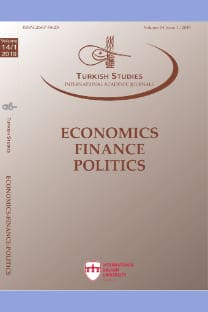Merkezine Anadolu’yu Alan Teorik Bir Perspektif Neden Gereklidir?
Gelecek ile birlikte düşündüğümüzde siyaseti ikiye ayırarak inceleyebiliriz. Bunlardan ilki bir bilim olarak siyaset iken diğeri teori olarak siyasettir. Bu tasniften ilki yani bir bilim olarak siyaset doğrudan gelecekle ilgili değildir. Burada kastettiğimiz siyaset türü değer yargılarından uzaklaşarak “olanı” objektif olarak anlamaya yönelmiş sosyal bilimlerin bir dalıdır. Siyasetin ikinci türü olana değil olması gerekene odaklanır ve genellikle siyaset teorisi olarak isimlendirilir. Siyasetin ikinci türü olan siyaset teorisi var olanı anlamaya yönelik değildir, olması gerekene odaklıdır. Bu çerçevede “gerçekleştirilmesi mümkün olan toplum nedir”, “iyi bir toplum düzeni nasıl olur” soruları ile ilgilidir. Toplumu değiştirme dönüştürme ve iyi toplum düzeninin ne olması gerektiğine yönelik arayışlara genellikle Liberal ve Marksist ideologlar öncülük etmiştir. Liberalizmin teorik kavrayışı çıkarcı insan doğasına dayalıdır. Teorik inşayı insanın çıkarcı doğası üzerine kurmak var olandan hareket etmek demektir. Var olandan hareketle olması gerekene ulaşmak mümkün değildir. Burada var olandan hareket etmek bir diğer ifade ile çıkarcı insan doğasından hareket etmek var olan sistemi meşrulaştırmak demektir. Marksist yaklaşımlar ise Avrupamerkezci bir tarih okumasıyla tüm dünyaya oryantalist kurtuluş reçeteleri sunmaktadır. Avrupanın geçtiği tüm aşamalardan dünyanın geri kalanının geçeceğini varsayarak dünyanın tümü için kurtuluş reçetesi hazırlamak büyük bir ütopyadan ibarettir. Siyasetin teorik önermelerindeki bu eksiklerinden yola çıkarak, bu çalışmada Türkiye’de teorik siyaset anlayışının Anadolu merkezli olması gerektiği ileri sürülmüştür.
Why A Theoretical Perspective That Takes Anatolia to Its Center is Essential
When we think about politics with the future, we can examine it in two. The first is politics as a science, the other is politics as a theory. The first of this classification, politics as a science, is not directly related to the future. The type of politics that we mean here is a branch of social sciences that has moved away from value judgments to understand the “reality”objectively. The second type of politics focuses on what should be, not what is, and is often called political theory. Political theory, the second type of politics, is not intended to understand what exists, it focuses on what should be. In this context, it is related to the questions "What is a society that can be realized" and "How can a good society be? Liberal and Marxist ideologists often led the quest for changing society, transforming and what a good social order should be. The theoretical understanding of liberalism is based on self-interested human nature. To build theoretical construction on the self-interest nature of human means, to act from the existing. Based on the existing, it is not possible to reach what it should be. To act from what is existing here, in other words, to act from the self-interested human nature, means to legitimize the existing system. Marxist approaches, on the other hand, offer orientalist liberation prescriptions to the world with a Eurocentric history reading. Assuming that the rest of the world will pass through all the stages that Europe has gone through, preparing a prescription for salvation for the whole world is a big utopia. Based on these deficiencies in the theoretical propositions of politics, it was suggested that our country's theoretical understanding of politics should be centered in Anatolia.
___
- Barry P. N. (2003). Modern siyaset teorisi. Liberte Yayınları.
- Giddens A. (1997). Jürgen Habermas”, (Çev: Ahmet Demirhan). Çağdaş Temel Kuramlar. Vadi Yayınları. 156-191.
- Heywood A. (2000). Siyaset teorisine giriş, (Çev: H. M. Köse). Küre Yayınları.
- Köker L. (1998). İki farklı siyaset. Vadi Yayınları.
- Skinner, Q. (1997). “Teorinin dönüşü” (Çev: Ahmet Demirhan). Çağdaş Temel Kuramlar. Vadi Yayınları. 9-33.
- Said E. (1998). Oryantalizm. İrfan Yayıncılık.
- Saybaşılı K. (1999). Siyaset biliminde temel yaklaşımlar. Doruk Yayınları.
- Sunar İ. (1999). Düşün ve Toplum. Doruk Yayınları.
